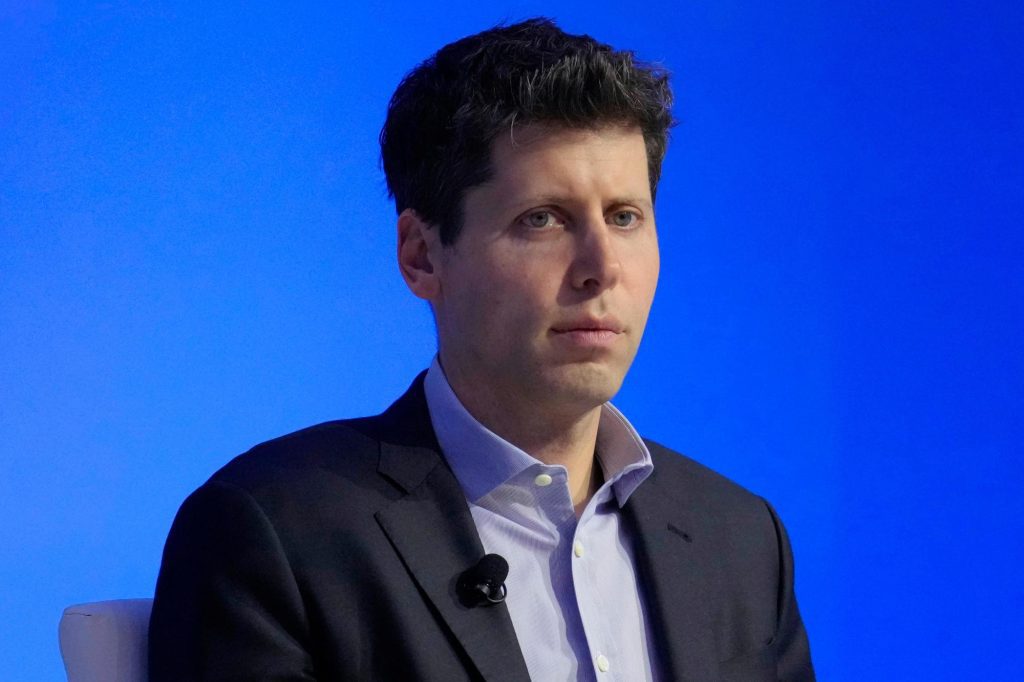By MATT O’BRIEN and HALELUYA HADERO (AP Business Writers)
OpenAI is reinstating CEO Sam Altman to its board of directors and stated that it has “full confidence” in his leadership after an external investigation into the company's chaos.
The ChatGPT creator hired the law firm WilmerHale to investigate the abrupt firing and rehiring of Altman. After several months, it was found that Altman’s removal was due to a breakdown in the relationship and trust with the prior board, OpenAI announced Friday. It did not disclose the full report.
OpenAI also announced the addition of three women to its board of directors: Dr. Sue Desmond-Hellman, a former CEO of the Bill & Melinda Gates Foundation; Nicole Seligman, a former Sony general counsel; and Instacart CEO Fidji Simo.
These actions are intended to demonstrate to investors and customers that the San Francisco-based artificial intelligence company is attempting to move past the internal conflicts that nearly destroyed it last year and garnered global attention.
“I’m glad this whole thing is over,” Altman told reporters Friday, expressing disappointment in the leaking of information aimed at damaging the company or its mission and causing division. He also acknowledged that he could have handled a dispute with a former board member “with more grace and care.”
For more than three months, OpenAI provided little information about the reasons behind the firing of Altman on Nov. 17. An announcement that day stated Altman was “not consistently candid in his communications,” hindering the board’s ability to fulfill its duties. He was also removed from the board, along with chairman Greg Brockman, who subsequently resigned as the company’s president.
A substantial portion of OpenAI’s conflicts are rooted in its unconventional governance structure. Initially established as a nonprofit with a mission to safely develop futuristic AI for the benefit of humanity, it is now a rapidly growing business still governed by a nonprofit board committed to its original mission.
The investigation determined that the prior board acted within its discretion. However, it also concluded that Altman’s “conduct did not require removal,” OpenAI disclosed. It affirmed that both Altman and Brockman were the appropriate leaders for the company.
“The review found a significant breakdown in trust between the prior board, and Sam and Greg,” stated Bret Taylor, the board’s chair, on Friday. “It also confirmed that the board acted in good faith, believing that its actions would help alleviate some of the perceived challenges and did not anticipate some of the instability.”
After his sudden removal, Altman, supported by most of OpenAI’s workforce and business partner Microsoft, orchestrated a comeback that reinstated Altman and Brockman to their executive roles. This forced out board members Tasha McCauley, Helen Toner and another co-founder, Ilya Sutskever, although the latter retained his position as chief scientist and expressed regret for his role in the removal of Altman.
Altman said on Friday that he believes Ilya likes OpenAI and he hopes they will keep working together, but he refused to answer a question about Sutskever’s current position at the company.
Altman and Brockman did not regain their board seats when they rejoined the company in November. However, a new board of three men was formed, led by Taylor, a former Salesforce and Facebook executive who also chaired Twitter’s board before Elon Musk took over. The others are former U.S. Treasury Secretary Larry Summers and Quora CEO Adam D’Angelo, the only member of the previous board to stay on.
Both Quora and Taylor’s new startup, Sierra, operate their own AI chatbots that use OpenAI technology.
Following the retention of the law firm in December, OpenAI stated that WilmerHale conducted numerous interviews with the company’s prior board, current executives, advisers and other witnesses. The company also mentioned that the law firm reviewed thousands of documents and other corporate actions.
The board stated that it will be implementing “improvements” to the company’s governance structure. It plans to adopt new corporate governance guidelines, strengthen the company’s policies around conflicts of interest, create a whistleblower hotline for anonymous reports from employees and contractors, and establish additional board committees.
The company still faces other issues, including a lawsuit filed by Musk, who helped fund the early years of OpenAI and was a co-chair of its board after its 2015 founding. Musk alleges that the company is betraying its founding mission in pursuit of profits.
Legal experts have doubts about whether Musk’s arguments, focused on an alleged breach of contract, will hold up in court.
However, it has already brought to light the company’s internal conflicts about its unique governance structure, its transparency about its research, and how to pursue artificial general intelligence, or AI systems that can perform as well as or better than humans in a wide variety of tasks.
On Friday, Taylor stated that OpenAI’s “mission-driven nonprofit” structure will remain unchanged as it continues to pursue its vision for artificial general intelligence that benefits “all of humanity.”
Taylor said that their primary duty is to the mission, but the company was created to serve that mission.
—-
The Associated Press and OpenAI have a licensing and technology agreement that allows OpenAI access to part of AP’s text archives.









